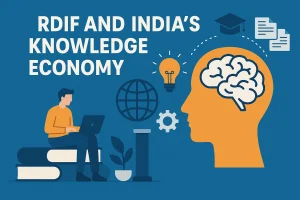Asia-Pacific Economic Cooperation APEC 2025 Summit Overview
Explore the Asia-Pacific Economic Cooperation (APEC) 2025 Summit, its goals, economic impact, and India’s potential membership debate. Learn about APEC’s importance for global trade, sustainable growth, and regional integration.
APEC Summit 2025
The Asia-Pacific Economic Cooperation (APEC) Summit, which commenced on October 31, 2025, in Gyeongju, South Korea, brings together leaders from the world’s most dynamic economies. This annual forum serves as a vital platform for dialogue on global trade, economic integration, sustainability, and regional cooperation amidst mounting geopolitical tensions.
What is APEC?
Established in 1989, APEC is the premier regional economic forum aimed at promoting balanced, inclusive, sustainable, innovative, and secure growth across the Asia-Pacific region. Its overarching vision is to achieve regional economic integration and enhance prosperity through free and open trade.
APEC’s 21 member economies — including the United States, China, Japan, Australia, Canada, Russia, South Korea, Indonesia, and others — are referred to as economies rather than nations to maintain focus on trade and economics rather than political recognition.
The forum operates on non-binding commitments, voluntary cooperation, and equal dialogue, emphasizing consensus-building and open discussion over rigid treaties. The 2025 Gyeongju Summit marks another milestone where leaders will deliberate on issues like digital transformation, green growth, and supply chain resilience in a post-pandemic and climate-challenged world.

Significance of APEC
1. Economic Powerhouse:
The APEC region accounts for nearly 60% of global GDP and 50% of world trade, making it the largest economic bloc globally. APEC’s collective strength has made it a crucial driver of global economic recovery and sustainable growth.
2. Catalyst for Trade Liberalisation:
Since its inception, APEC has been a major force behind reducing tariffs and non-tariff barriers across the Asia-Pacific. The Bogor Goals (1994) set an ambitious vision for free and open trade and investment, promoting regulatory coherence, customs modernisation, and efficient supply chains.
3. Platform for Strategic Dialogue:
APEC acts as a neutral ground for major powers like the US and China to engage constructively. Amid trade wars and strategic rivalry, APEC provides an avenue for cooperation on pressing issues such as digital trade, green energy, and pandemic preparedness.
4. Focus on Inclusive and Sustainable Growth:
Beyond economic liberalisation, APEC increasingly focuses on women’s economic empowerment, digital innovation, climate resilience, and public health cooperation. The APEC Putrajaya Vision 2040 outlines an agenda for innovation-driven, inclusive, and sustainable prosperity across the region.
Should India Join APEC?
India’s potential inclusion in APEC has long been debated, reflecting both opportunities and challenges.
Arguments in Favour:
-
Strategic and Economic Integration: Joining APEC would solidify India’s position within the Asia-Pacific economic architecture, aligning with its “Act East Policy” and granting access to vast regional markets and trade networks.
-
Investment Magnet: APEC membership could enhance investor confidence, signalling India’s commitment to economic reform and trade openness, and attracting foreign direct investment (FDI) from advanced economies.
-
Counterbalance to China: India’s democratic credentials and economic scale could serve as a strategic counterweight to China’s dominance, strengthening ties with like-minded economies such as the US, Japan, and Australia.
Arguments for Caution/Challenges
-
Consensus and Compatibility: APEC operates by consensus. India’s large, complex, and still partially protected economy might complicate collective decision-making or slow down APEC’s reform agenda.
-
Domestic Preparedness: Full integration would require structural reforms, including reducing tariffs, liberalising investment norms, and harmonising standards — areas where domestic resistance could arise.
-
Alternative Engagements: India is already an active member of Quad and the Indo-Pacific Economic Framework (IPEF), which also promote regional connectivity and strategic cooperation. Hence, APEC membership, while beneficial, may not be immediately essential.
Conclusion:
The APEC 2025 Summit underscores the forum’s centrality in shaping the Asia-Pacific’s economic trajectory amid global uncertainty. Its commitment to free trade, innovation, inclusivity, and sustainability continues to make it a cornerstone of regional governance. For India, potential membership could unlock vast strategic and economic opportunities, but it requires aligning domestic reforms with APEC’s liberalisation framework. As the world navigates economic fragmentation and climate urgency, APEC remains pivotal in advancing shared prosperity and resilient multilateralism across the Pacific Century.
Subscribe to our Youtube Channel for more Valuable Content – TheStudyias
Download the App to Subscribe to our Courses – Thestudyias
The Source’s Authority and Ownership of the Article is Claimed By THE STUDY IAS BY MANIKANT SINGH





